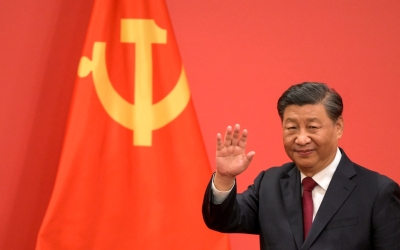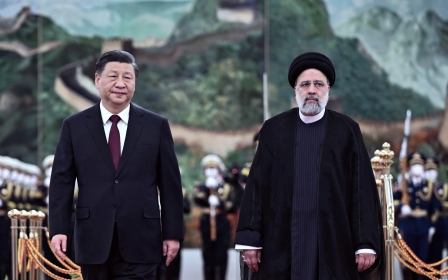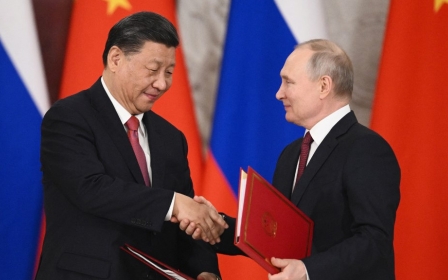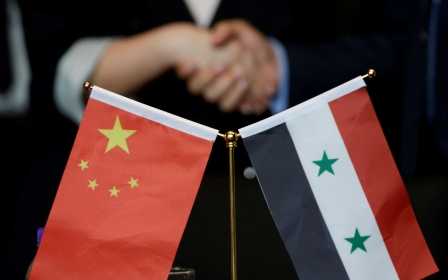China wants to be a different kind of great power than the US
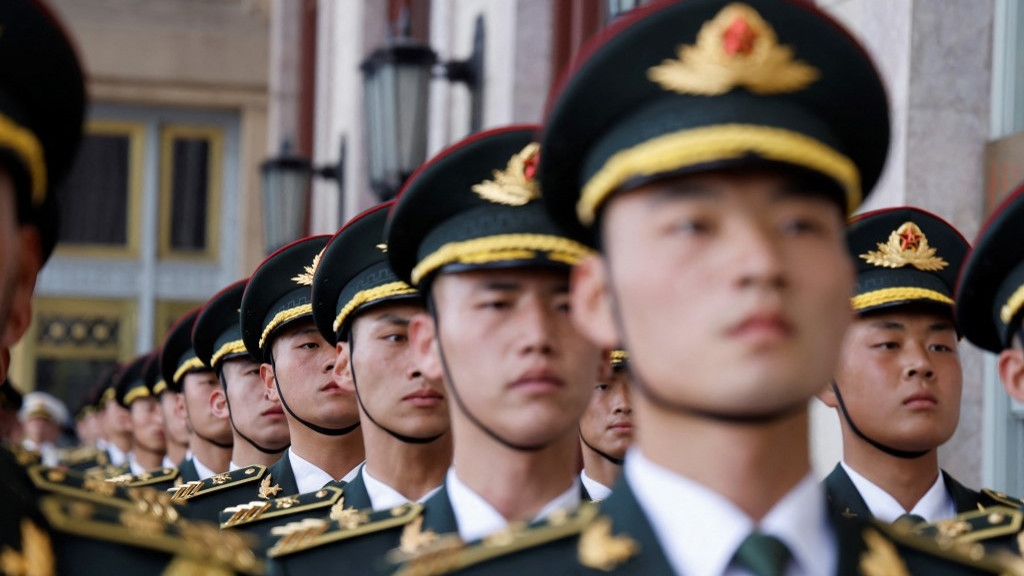
China's foreign ministry recently published a report titled "US Hegemony and Its Perils". The 4,000-word document outlines what it calls "facts" that the international community should know about the "perils" of US foreign policy around the world.
In a disparaging indictment, the Chinese report, the first of its kind in detailing the case against its global rival, consists of five parts that criticise American hegemony in the political, military, economic, technological and cultural spheres. This document holds both global and regional significance, indicating the future direction of Chinese strategies and priorities in the Middle East.
China is deeply critical of Washington's "abuse" of its hegemony, noting that the US "has acted more boldly to interfere in the internal affairs of other countries" since becoming the world's most powerful nation.
The word "abuse" is repeated several times in the report, raising a question: by specifically condemning the "abuse” of hegemony, is China tacitly approving the possible existence of non-abusive hegemony? In other words, is the document suggesting that Beijing's rise to the position of global hegemon - provided that it does not abuse this role, as it argues Washington has done - is acceptable?
This reading becomes more plausible when compared with past Chinese statements about the global power rivalry. Over the past two decades, China's official state discourse has stressed an explicit anti-hegemony line: "We have taken a clear-cut stance against hegemonism and power politics in all their forms... China will never seek hegemony or engage in expansionism," President Xi Jinping said at the National Congress of the Chinese Communist Party last October.
New MEE newsletter: Jerusalem Dispatch
Sign up to get the latest insights and analysis on Israel-Palestine, alongside Turkey Unpacked and other MEE newsletters
The new document signals a clear shift from this position, and could be viewed as the formal inception of Beijing's pursuit of its own global "benign hegemony" - an alternative to Washington's "malign hegemony".
The logic of China's non-abusive hegemony, as inferred from the document, is to offer partnerships with states based on non-interference in their internal politics. Washington's abusive hegemony, by contrast, is characterised by pushing for regime change and interfering in other states' internal affairs.
Shared features
In the Middle East, however, China's offer of a non-abusive hegemony seems to share some key features with what Beijing sees as abusive American hegemony. Importantly, both place great significance on their relationship with Israel. While US support for Israel is a given, however, China's is a bit more difficult to discern.
The recent document criticises Washington's "selective approach to international law and rules" in a broad sense, but does not specifically target this American practice when it comes to Israel, noting only that the US exited the UN Human Rights Council in 2018 over the body's "bias" against Israel.
Palestinians receive China's verbal support, but no real action - just empty words
In fact, there is much more that could have been said about the long and scandalous US record of blocking UN resolutions against Israel - not to mention Washington's decision to move its embassy to Jerusalem, a clear violation of international conventions. The US has also recognised the illegally annexed Golan Heights as Israeli territory.
It is indeed ironic that China, while seeking "benign hegemony", maintains strong relations with the most malign actor in the Middle East - one that occupies Palestinian and Syrian land and has been deemed an apartheid state by major international human rights organisations. In 2017, Israeli Prime Minister Benjamin Netanyahu described the Israel-China relationship as a "marriage made in heaven".
In the shadow of this marriage, Palestinians receive China's verbal support, but no real action - just empty words.
Backing dictators
Another shared area between American and Chinese hegemonies is the backing of totalitarian regimes when these regimes are considered allies or friendly.
China, which feels more at ease with these regimes, has accused the US of "orchestrating" the Arab Spring, "bringing chaos and disaster to many countries". China never welcomed the Arab uprisings, which led to the removal of dictators by way of public protest. The American position was not greatly different, but more nuanced and pragmatic: Washington wanted to side with the winning party, be it the mass protest movements or the incumbent regimes.
A telling case in point was Egypt. When the revolution succeeded in removing then president Hosni Mubarak, the US supported the revolutionaries; but when the military brought back the deep state through a coup, the US supported that too.
In the case of the Syrian uprising, the US and China have helped the Assad regime in different ways. While the former withheld any significant military aid to Syrian rebels and remained idle after the Syrian regime used chemical weapons, China blocked major resolutions against the regime at the UN. Before, during and after the Arab Spring, both the US and China continued to support Arab monarchies in the Gulf, Jordan and Morocco.
Almost until the Second World War, the US projected itself as a benevolent power that, despite its global rise, had no intentions of hegemony or expansion. But during the Cold War, American imperialism and hegemony stretched, along with that of the Soviet Union, around the globe.
The Chinese document summarises the rise of aggressive US hegemony, while offering its own alternative for benign hegemony. And just like it was for the US, the Middle East seems to be a prospective arena for China's growing hegemony.
The views expressed in this article belong to the author and do not necessarily reflect the editorial policy of Middle East Eye.
Middle East Eye delivers independent and unrivalled coverage and analysis of the Middle East, North Africa and beyond. To learn more about republishing this content and the associated fees, please fill out this form. More about MEE can be found here.



